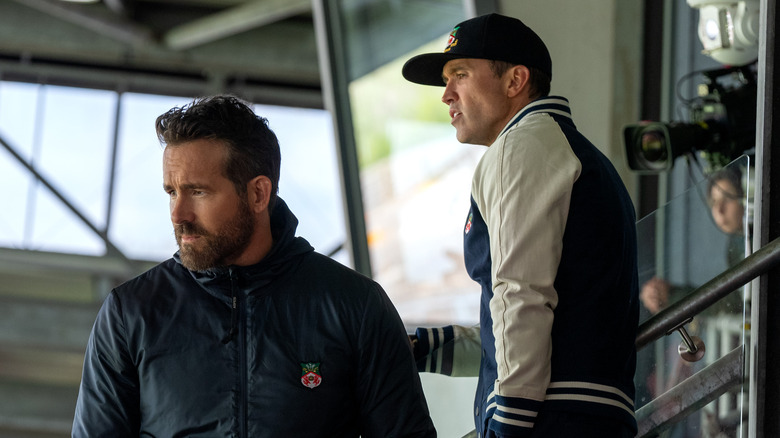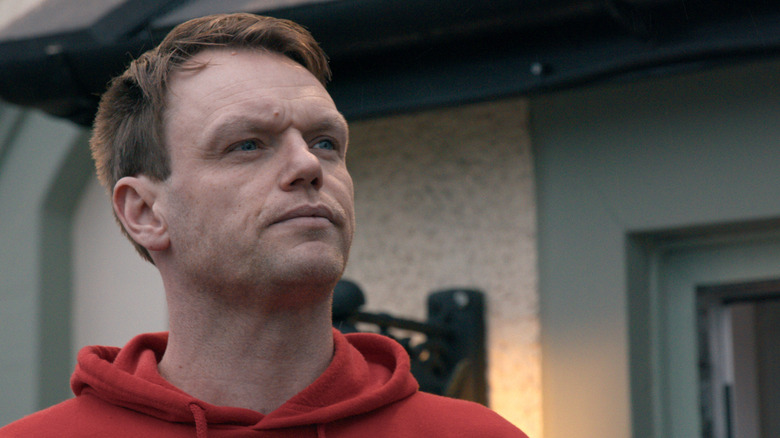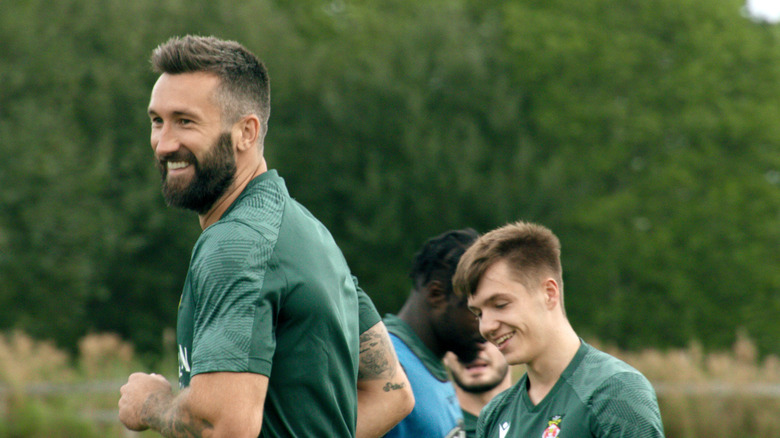Welcome To Wrexham Season 2 Review: The Uplifting Soccer Doc Strikes Again
- Great sense of humor
- Genuinely moving moments
- Smart self-awareness
- Changing the song during the opening credits
Last year, Ryan Reynolds and Rob McElhenney's soccer documentary series "Welcome to Wrexham" was a low-key surprise hit. Throughout its 18-episode-long first season, the FX show garnered critical acclaim and good ratings, and found its way to millions of viewers' hearts. It's easy to see why: it's an earnest, real-life underdog story told with sincerity.
Naturally, it attracted loads of attention because the two baller Hollywood stars' purchase of a fifth-tier Welsh soccer club was a peculiar decision, to say the least. The question of "What the hell are they doing?" must have crossed the minds of many (including mine) who were eager to see how all this would play out. The two actors may not have known much about low-tier English soccer at the start, but they knew how to craft a narrative and tell it engagingly for maximum effect. It worked.
Season 2 picks up where the previous season left off. After a sped-up recap that reminds us of the club's failed attempt to achieve the goal of promotion last year, Wrexham A.F.C. starts a new season in the National League they are desperately trying to get out of. This time, however, the consequence of another potential failure would be more severe — if they can't get promoted, the club becomes financially unsustainable. While facing that undesired outcome, Wrexham and its supporters now also have to fight against an additional obstacle the series' rise to fame has brought them: they've become the famous team to beat.
Season 2 is smart, self-aware, and touching
The exposure and publicity the docuseries acquired with Season 1 wasn't lost on the creators. Besides the hundreds of new fans who stormed the tiny Welsh city once the debut season wrapped, hoping to meet their heroes (and not just the American ones), the team also obtained many haters who want to see them lose both on and off the field. It's a clever and self-aware move by Ryan Reynolds and Rob McElhenney to not only point this out early on but acknowledge and embrace the challenge of it. There will always be doubters, naysayers, and cynics, especially in the world of English soccer, and there's no greater motivation than to prove them wrong by succeeding. With all that in mind, everyone on the team — and the committed fans, admirers, and helpers behind it — tries to bring their A-game to get the club where they want it to be.
But besides the competitive aspect that drives the show, soccer isn't everything when it comes to "Welcome to Wrexham." At its core, the series is all about revitalizing the community of a small town by uniting sports fans who come together to celebrate and support their beloved team. The most convincing and uplifting quality of the series has always been its authentic portrayal of human beings, who became non-fictional characters we grew fond of by getting to know them closely during the first season.
From players to coaches to fans, Reynolds and McElhenney continue to selflessly focus on the microcosm of this community, devoting time (besides documenting the club's progress) to individuals associated with the team who not only deserve the spotlight but embrace it with grace. Such is the episode that concentrates on Paul Mullin's autistic son, paralleled by a young and dedicated girl supporter also diagnosed with autism. Efforts like this could turn manipulative and didactic in the wrong hands, insincerely aiming for easily-earned tears and sympathy, but the creators convey these stories through such a delicate, humane lens that they genuinely come off as heart-warming and sweet instead. Highlighting and capturing their everyday moments clearly add to the core value of what "Welcome to Wrexham" strives to represent. Individuals make this town and its soccer team what it is, because the people of Wrexham will always come first.
The sense of humor remains intact
But let's not forget about one of the main appeals that has quickly become the trademark feat of the show right from the beginning: its delightful humor. For the most part, Rob McElhenney and Ryan Reynolds keep things light when the camera is on them, making witty remarks and teasing each other relentlessly, utilizing their comedic skills and sense of humor to great effect. Whether it's the King of England coming for a friendly visit and a handshake (an occasion the actors prepared for by hiring an etiquette coach), witnessing Phil Parkinson's "enthusiastic" strategic and motivational speeches, or dealing with the painfully sluggish U.K. government, McElhenney and Reynolds don't waste any potential to crack a joke. It's a careful balancing act to make things fun yet also let frustrating, challenging, and intimate moments play out as they should without undercutting them with improper comedy. And the two nail this like absolute pros.
Overall, Season 2 continues to deliver the quality and energy we fell in love with the first time around. Based on the four episodes provided for review, "Welcome to Wrexham" brings more of the same while simultaneously reflecting on the positive and negative effects of its own success, keeping the narrative fresh and original. Of course, for anyone who follows the career of Wrexham A.F.C. in real-time, the outcome of the season won't be a big surprise (and given the worldwide publicity of the club's success, that's a lot of people). Yet the fun lies in witnessing their journey to get there. Plus, now that AppleTV+'s beloved "Ted Lasso" — which greatly resembled the underdog narrative and vibe of the docuseries — has come to an end, "Welcome to Wrexham" might even fill a hole for many who want more. And let's be honest, there's a much smaller chance for any potential controversy here because this show is the real deal.
"Welcome to Wrexham" returns to FX with Season 2 on Tuesday, September 12.
This piece was written during the 2023 WGA and SAG-AFTRA strikes. Without the labor of the writers and actors currently on strike, the series being reviewed here wouldn't exist.


